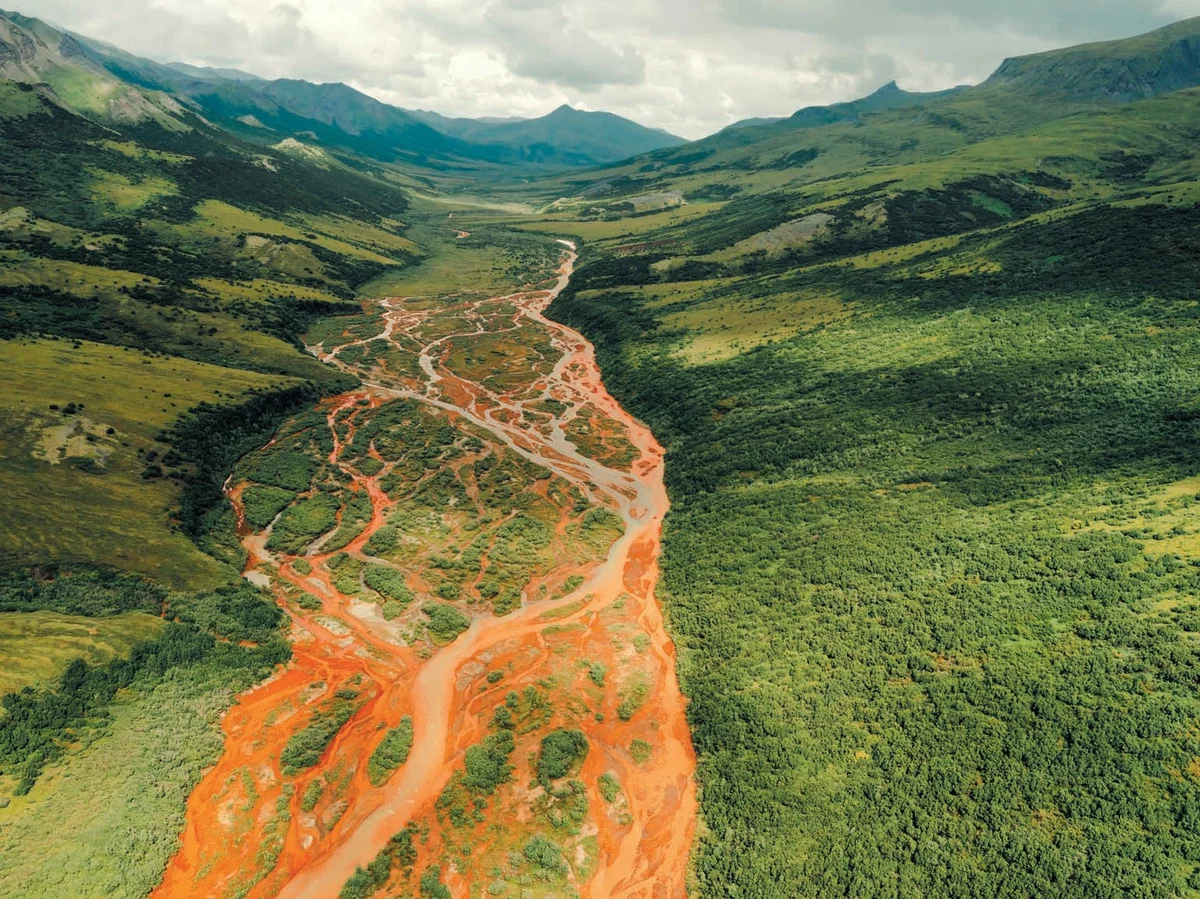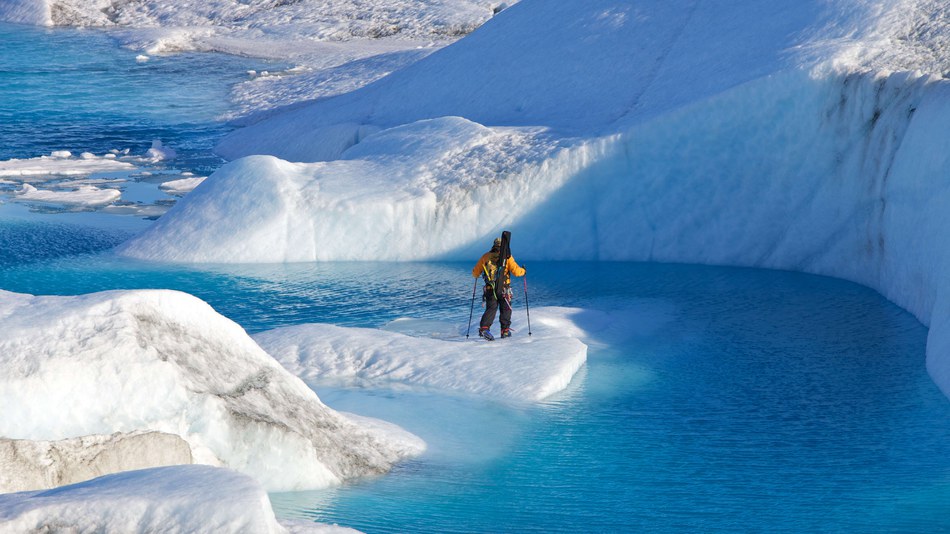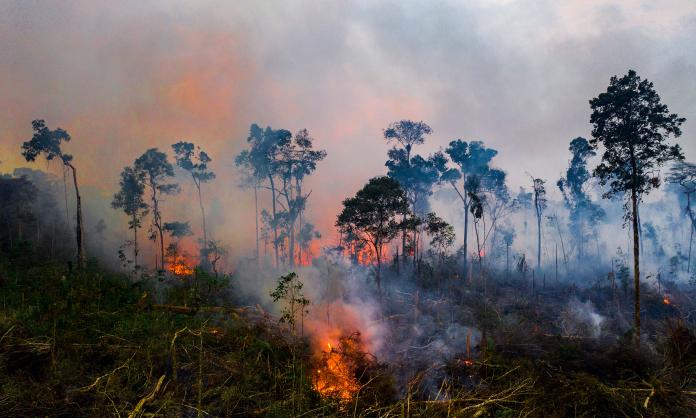Topic: Biodiversity / Biodevastation
-

The State of Capitalism’s Climate System
Three years ago, 15,000 scientists declared a climate emergency by signing onto a State of the Climate Report. That signing led to annual updates, for example, the most recent version: The 2023 State of the Climate Report: Entering Uncharted Territory, Bioscience, vol. 73, issue 12, December 2023, Oxford Academic (aka: “The Report”). The initial paragraph…
-

Alaska’s Scary Orange Rivers
Global warming can add one more notch to its gun belt. The rapid onset of global warming is turning Alaska’s wilderness rivers orange. Global warming impacts Arctic temperatures 2-4 times warmer than the global average, and permafrost that’s been around since before humans sat round crackling cave fires is rapidly melting. Eons of frozen stuff…
-

From Gratitude to Grievance
“Faith is the conviction of things not seen.” Fate is the coming of things seen too late. They told the farmers to plow up the dry land.“Rain will follow the plow,” said the railroads,the government, the agricultural experts.In the 1930s Dust Bowl the shadow fellon the farmers as…
-

The Tree That Never Was: the Latest Sign of Our Collapsing Regulatory Ecosystem
—
by
On December 8th, the American Chestnut Foundation (TACF) announced it was withdrawing support “for several pending regulatory petitions that would authorize distribution of transgenic Darling 58 trees outside permitted research plots”. The announcement was shocking, one that should have huge implications for the idea of releasing GMOs into the wild. The TACF press release explained…
-

Global Warming Slices and Dices Greenland
Northern Greenland is under attack by global warming at the same time as delegates to COP28 heap praise on a purported landmark deal to transition out of fossil fuels — but beware of the true meaning behind the language. Its disingenuousness is a stamp of approval for much more climate upheaval imprinted onto one more…
-
20,000 Toxic Sites in Sagging Arctic Permafrost
New studies show the Arctic heating up at 4 times the overall rate of global warming. This startling rate in one of the most sensitive environments in the world could trigger toxic disasters in up to 20,000 industrial contamination sites. “Industrial contaminants accumulated in Arctic permafrost regions have been largely neglected in existing climate…
-

Antarctica’s Dicey Summer
The past couple of years in Antarctica have been a rough and tumble affair of erratic climate change with record-high temperatures and totally unexpected ice shelf collapse. The continent is starting to reflect the impact of a warming planet that’s just too hot for icy comfort. So, what surprises will this year’s summer season bring?…
-

Climate Emergency Update, September 2023
Earth’s climate system is in a state of emergency. Emergencies are defined by four specific elements; they are (1) serious (2) unexpected (3) dangerous, and (4) require immediate action. Based upon a new YouTube broadcast by the inveterate commentator Dr. Peter Carter, all those elements are in-play in a very big way. Dr. Carter, expert…
-

Japan’s Insane Immoral Illegal Radioactive Dumping
Japan cannot possibly outlive the atrocity of dumping radioactive wastewater into the Pacific Ocean. In fact, Tokyo Electric Power Company (TEPCO) is an example of how nuclear meltdowns negatively impact the entire world, as its toxic wastewater travels across the world in ocean currents. The dumping of stored toxic wastewater from the meltdown in 2011…
-

The Nuclear Energy Trap
Nuclear reactors are directly in the line of fire of global warming. In fact, nuclear reactors cannot survive global warming. But that’s only the start of serious issues with the world’s newly found love affair with nuclear energy. This article examines the likelihood of nuclear energy as a fixit for global warming, or is it…









